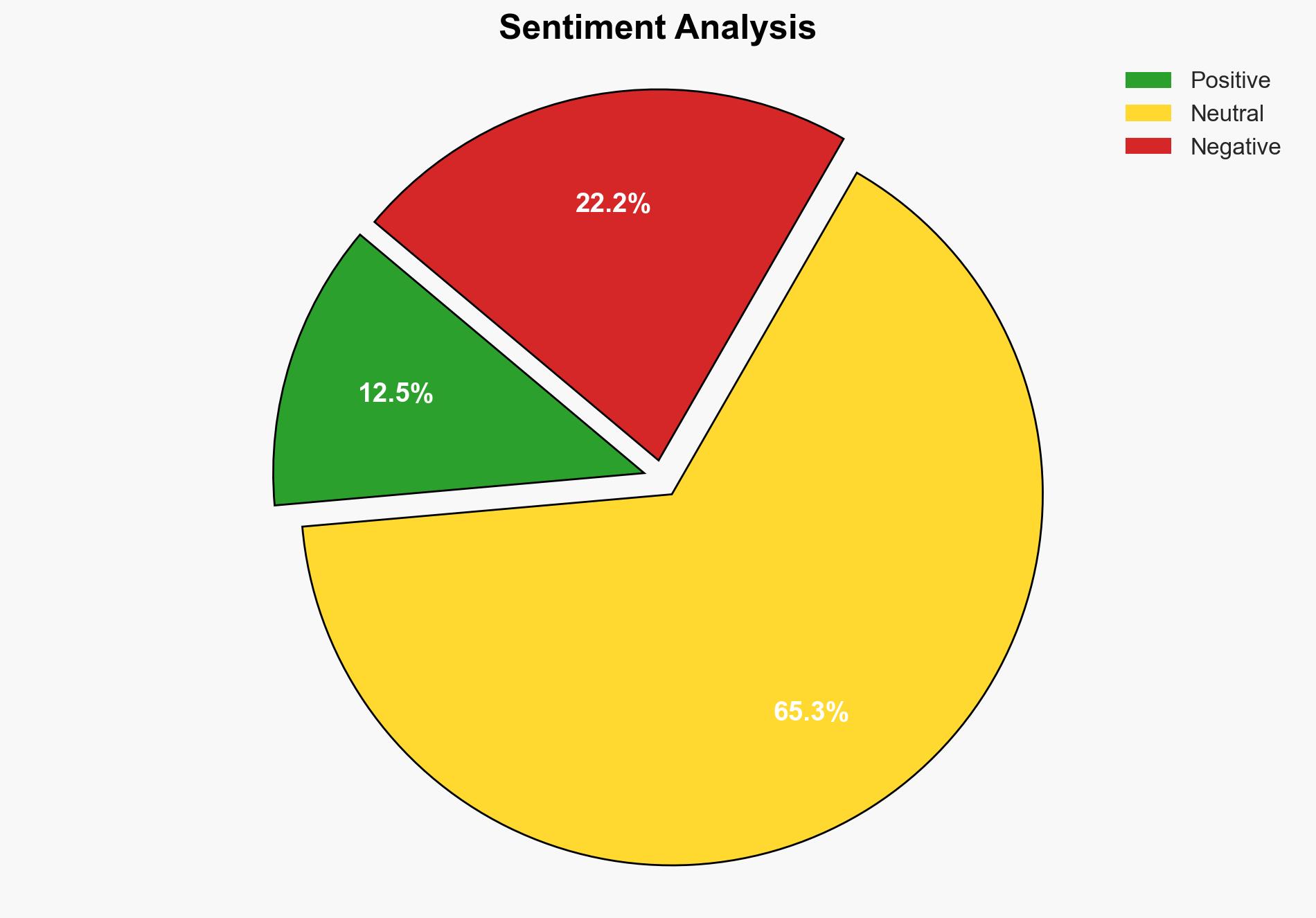Israel cuts off Gaza aid to pressure Hamas to accept deal extending ceasefire – CBS News
Published on: 2025-03-02
Intelligence Report: Israel cuts off Gaza aid to pressure Hamas to accept deal extending ceasefire – CBS News
1. BLUF (Bottom Line Up Front)
Israel has halted the entry of goods and supplies into Gaza to pressure Hamas into accepting a new proposal to extend the ceasefire. This decision is intended to facilitate the release of hostages and to negotiate a more permanent ceasefire agreement. The move has been met with accusations from Hamas of derailing existing agreements and exacerbating the humanitarian crisis in Gaza. The situation remains tense with potential for escalation if negotiations fail.
2. Detailed Analysis
The following structured analytic techniques have been applied for this analysis:
SWOT Analysis
- Strengths: Israel’s strategic leverage over Hamas by controlling aid flow; international support for hostage release.
- Weaknesses: Potential backlash from international community over humanitarian concerns; internal pressure from Israeli citizens.
- Opportunities: Potential for a long-term ceasefire and stabilization of the region; improved diplomatic relations if hostages are released.
- Threats: Escalation of violence if negotiations fail; increased humanitarian crisis in Gaza.
Cross-Impact Matrix
The decision to cut off aid to Gaza may influence neighboring regions by increasing regional tensions and potentially drawing in other countries as mediators. Egypt’s role as a mediator is crucial, and any changes in its stance could significantly impact the negotiation dynamics.
Scenario Generation
Best-Case Scenario: Hamas agrees to the new terms, leading to a permanent ceasefire and the release of all hostages, stabilizing the region.
Worst-Case Scenario: Negotiations collapse, leading to renewed hostilities and a worsening humanitarian crisis in Gaza.
Most Likely Scenario: Prolonged negotiations with intermittent ceasefires, maintaining a fragile peace while humanitarian conditions fluctuate.
3. Implications and Strategic Risks
The halt of aid to Gaza poses significant risks to regional stability and could exacerbate the humanitarian crisis, leading to increased international scrutiny and potential sanctions. The situation also poses a risk to national security through potential escalation of conflict, impacting economic interests and regional alliances.
4. Recommendations and Outlook
Recommendations:
- Engage in diplomatic efforts to support mediation by Egypt and other regional actors to facilitate a peaceful resolution.
- Consider humanitarian aid strategies that address immediate needs while maintaining pressure on Hamas for negotiations.
- Enhance intelligence sharing with allies to monitor developments and prepare for potential escalations.
Outlook:
In the best-case scenario, diplomatic efforts lead to a stable ceasefire and improved humanitarian conditions. The worst-case scenario involves renewed conflict and a deepening humanitarian crisis. The most likely outcome is a continuation of the current cycle of negotiations and intermittent ceasefires, with ongoing humanitarian challenges.
5. Key Individuals and Entities
The report mentions significant individuals and organizations, including Benjamin Netanyahu, Badr Abdelatty, Steve Witkoff, Gideon Saar, and Joe Biden. These individuals play pivotal roles in the ongoing negotiations and diplomatic efforts.





